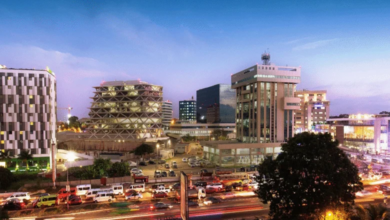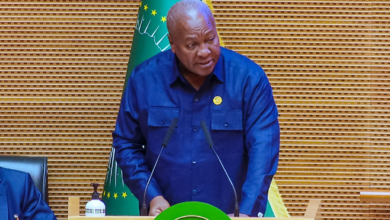Chéma Gargouri : “Playing with borders!”
Illegal" migration is not "illegitimate". Freedom of movement is a fundamental human right, but it is limited by the right of countries to protect their borders. Today, leaving one's country to start a better "life experience" far from one's origin means a confrontation with death. So what? It is better to risk one's body and soul to "seek a life" elsewhere, with hopes, than to bury one's dreams "at home" with every sunrise.

By Chéma Gargouri
In Tunisia, new arrivals are often traumatized by the terrible conditions that forced them to leave their country, their homes and their families. Those most psychologically affected are those who have suffered the collective trauma of armed violence at village, town or national level. Other forms of personal risk are often very stressful. Every migrant travels a risky, long, tiring and traumatic path. Psychologically, one loses one’s sense of orientation and one’s principles of autonomy. Migrant women, in particular, are in an even more precarious situation due to certain abuses (rape, torture, ill-treatment) suffered on the way to exile and perpetrated by criminal organizations or malicious individuals. Many daughter-mothers are in this state of heightened trauma.
Everyone claims his or her right: the native (of Sfax), the right to his or her territory, and the migrant, the right to live with the dignity of a « guest », just long enough to « escape » to the north (Europe), where the sunrise would mean a new day, a new birth
So, what should we do about this human catastrophe? Should we house them, feed them, have them as neighbors, as workers on building sites or in factories? Should we share our « holy bread » with them and accept their music blaring through the windows of a house and/or apartment, usually unhealthy, where dozens of sub-Saharan Africans are crammed together? Is it reasonable that « they » should share our streets, that they should invade our spaces and that we should queue with « them » to pay for our fruit and vegetables? … These questions have been asked over the years in Sfax, the capital of southern Tunisia, which, like every other corner of Tunisia, is renowned for its hospitality. No one talks about it at the level of successive governments, which have allowed things to happen, or rather allowed a situation fraught with all kinds of risks to fester. In the face of ticking time-bomb alarms, in the face of the need to combat trafficking networks, they have let it happen. For years (especially since the 2011 revolution), Sfax has seen hundreds of migrant women, mainly hired as housekeepers, treated as slaves (with a price on their heads) either by their tormentors (usually their fellow citizens) or by their employers.
Dozens of babies are born without papers after rape or a consensual relationship that lasts only a few hours. Mothers without motherhood, children without parents and anonymous lives. Young sub-Saharan people, sometimes with and/or without identity papers, arrive in Sfax and stay there, hoping to leave one day, but that day never comes. Left to their fate by governments complicit in this migration of misery, the citizens of Sfax struggle to find answers to their questions. Wronged by corrupt governments, feelings of powerlessness and frustration have gradually turned into hostility. The enemy became the other, and confrontation soon followed. Aristotle made it clear that « nature abhors a vacuum ». In the case of Sfax, the legal vacuum, the lack of protection and control, and the lack of knowledge of how to live with others led to violence and racist attitudes, resulting in acts of brutality and murder on both sides. The threat is growing, as is insecurity and, unfortunately, hatred. Everyone claims his or her right: the native (of Sfax), the right to his or her territory, and the migrant, the right to live with the dignity of a « guest », just long enough to « escape » to the north (Europe), where the sunrise would mean a new day, a new birth.
Africans (including our children in the Maghreb) are on the move, but the world is closing its doors to this freedom, which only appears in speeches and eulogies
Who are the culprits and who are the victims? What does history say? What do the leaders of these resource-rich African countries say? What does the « North » say, that it doesn’t want them or us? What does the international community and international law say? In the midst of this mad silence, Tunisian President Kais Saied spoke his mind: No to « illegal » migration. This dreaded word has wreaked havoc. A series of accusations against Tunisia, which suddenly and very quickly became the number one enemy of Africans and humanity. Insults in French, Italian, English, German, Wolof, Swahili? almost every language was used to convey anti-Tunisian messages. Once praised for its « friendliness », this country has become the « Machiavellian buzz » of the international press and social media. And what about Sfax? This city is « sinking into chaos », according to one foreign TV channel, and « at the end of its tether », according to another newspaper.
There is talk of the « confusion » and « desperation » of the migrants, victims of reprisals (following the murder of a young Sfax resident by a migrant) and expelled from the city (under a scorching sun and without food or water). No one can ignore the fact that Sfax is still experiencing a humanitarian crisis, and the vast majority of Tunisians, especially those from Sfax, cannot accept that their city should sink into racial hatred and violence. In Sfax, we love Africa as much as we feel African. It’s not just the few international NGOs that have come to the aid of these migrants. Many ‘Sfaxians’ and small but effective local NGOs have volunteered not only to offer help, but above all to press the local authorities to respond. Let’s face it, what is happening in Sfax and in Tunisia is not an exception! According to a report published by the IOM, there will be an “estimated 281 million international migrants in the world by 2020, representing 3.6% of the world’s population. Overall, the number of international migrants is estimated to have increased over the last fifty years.”
Africans (including our children in the Maghreb) are on the move, but the world is closing its doors to this freedom, which only appears in speeches and eulogies. Young Africans dream of building, constructing and succeeding in their own countries and elsewhere. Africa has failed to keep its children. African mothers (including Tunisian ones) sell their property to help their sons, and increasingly their daughters, make their first and perhaps last journey.
*Chéma Gargouri, Founder & Director
Tunisian Association for Management and Social Stability (TAMSS)






